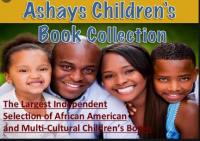By Suma Subramaniam on June 18, 2020 / Author Interviews, Book Lists, children's bookstores, Editor / Agent Spotlight, For Librarians, For Teachers, For Writers, Giveaways, independent bookstores, Nonfiction
Hello Mixed-Up Filers! I was fortunate to know Jacqui Lipton at VCFA where we both got our MFA degrees in Writing. After graduating from Vermont College Of Fine Arts, Jacqui has become an agent and an author. I’m so pleased to welcome her for an interview at Mixed-Up Files today.

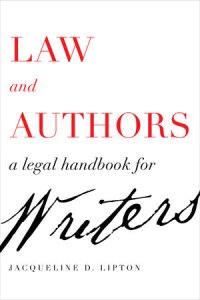
Hi Jacqui, thanks for joining us today at Mixed-Up Files.
Thank you for having me and congratulations on your recent book deal!
Thank you, Jacqui! Tell us about your book. What motivated you to write Law & Authors?
The more I began to immerse myself in the writing community, the more I realized the need for easily accessible resources for writers who couldn’t necessarily afford to hire lawyers for every little problem, and who could use some guidance on when and how to find legal advice. One thing I’ve tried to do in the book is to make the legal issues fun and accessible by using examples from popular culture to illustrate how things like copyrights, trademarks, contracts, privacy and defamation law work. I’ve also included hints and tips about what issues writers can handle reasonably easily on their own (e.g. registering a copyright) and when legal help may be necessary.
- How did you become an agent and an author?
Becoming an author is easy. You just sit at a typewriter and bleed, right?
But agenting is a tougher nut to crack, and I wasn’t always sure that’s what I wanted to do anyway. While I was in the MFA program, the opportunity arose to become a reader for an established kidlit agent. I loved the editorial and manuscript development work and, with my legal background, I was fascinated by the legal and business side of the industry. After a few years of moving in that direction, and doing some informational interviews with other agents, I figured it was time to fish or cut bait.
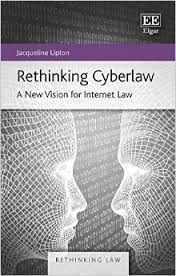
- What are the top three contract provisions an author must understand before signing with an agent?
Agency contracts are actually pretty easy to follow and are usually no more than two or three pages long. It’s the with publishers that are more complex: see below. For an agency contract, it’s important to understand:
- the scope of representation (what work the contract actually covers e.g. everything you write during the term of the agreement; only your writing in a particular genre or in a particular market etc.?);
- when and how the agreement can be terminated (how much notice do you have to give? Are you locked in for a particular period after signing?); and,
- if you move on to another agent, what happens to projects you’ve worked on while at the previous agency (when can you submit them to editors through the new agency? Will the original agency take a cut of the commission?)
Of course, you want to know what commission the agent gets. It’s standard for most agents to ask for 15% of your royalties for a regular sale and higher percentages if they engage other agents for subrights etc. because that sub-agent will also take a cut.
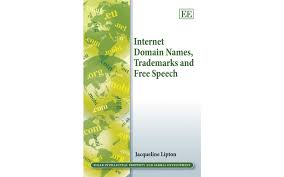
- What are the top five dos and don’ts when it comes to contract negotiations with publishers?
It probably depends on whether you’re negotiating yourself or via an agent. If you have an agent, your agent will probably guide the strategy to an extent, and will handle the negotiation on your behalf, but of course in close consultation with you. After all, the agent represents you, not the other way around.
Each contract varies with context so there are no hard and fast rules, but you should think about things like:
- What rights the publisher is taking. If the publisher wants subrights like foreign, translation, merchandising, film/TV etc, think about whether the publisher is likely to be able to execute those rights satisfactorily. If not, try to retain them, or at least seek a reversion (ie you get back the rights) after a particular period of time.
- How much is the advance you’re being offered? This is not something you should really look at out of context; you need to consider royalties, sub-rights etc at the same time. A lower advance will be easier to “earn out” (ie pay back out of royalties) so a lower advance isn’t necessarily a bad thing.
- If you’re writing a book that has significant design or illustration elements (e.g. a picture book), will you get consultation or approval over those design elements, including over the choice of illustrator etc. The same comes up with choice of narrators under audio rights contracts. Many publishers will give you consultation, rather than approval, but most good publishers are collaborative on this score for the most part in any event.
- Understand that you are likely making certain representations to the publisher that your book doesn’t infringe anyone else’s legal rights, including copyrights and trademark rights, and that your book doesn’t defame anyone. The publisher will likely seek an indemnity from you if they are sued for these things. Try to find out if you can limit the indemnity to non-frivolous legal action (frivolous claims are those that are raised more for the annoyance value than because there is a serious legal issue at stake). See if the publisher is able to extend any of its liability insurance to cover you: this is unlikely but you can ask.
- Understand what happens if you don’t submit your final manuscript on time or you don’t submit a satisfactory manuscript. Do you have a right to have extra time (if you can’t make your initial deadline), and/or to revise to the publisher’s specifications? If you get more time, how much time? What happens to your advance if you fail to deliver a satisfactory manuscript?
Publishing contracts are much more complex than agency contracts which is why it’s a good idea to work with an agent, if you possibly can. If you don’t have an agent, it may be worth engaging the services of a lawyer with expertise in publishing contracts to help you negotiate these contracts.
- Could you recommend resources for authors or illustrators who would like to protect their rights in the current publishing environment?
For those who are members of the Authors Guild, there are useful legal resources on their website and they do offer contract consultations.
Volunteer lawyers for the arts organizations around the country provide pro bono legal advice to authors and artists but often have significant waiting lists.
Some writers’ organizations, like SCBWI and SFWA have helpful information about publishing dos and don’ts and current issues of concern on their website, including an “ask a lawyer” bulletin board accessible from the SCBWI website.
The Authors Alliance has useful information on their website particularly about contract negotiations, fair use and rights reversions.
I go into more detail on how to find effective and affordable legal advice in the final chapter of Law and Authors.
- Tell us about your experience founding Raven Quill Literary Agency, and your growing team of agents and authors.
It seems to have grown really fast but it’s been a lot of fun. I started the agency earlier this year with the aim of creating a fun and transparent, but of course professional, team of authors and agents working to bring new stories and voices into mainly the kidlit area. A significant aspect of our mission is to help make underrepresented voices heard. We also like to work closely and editorially with all of our authors. The agency largely grew by accident. It started with just me and rapidly expanded to include our other agents who are all amazing (Kelly Dyksterhouse, Kortney Price, and Lori Steel) largely through a series of happy accidents; people being in the right place at the right time.
- What advice do you have for authors who want to query an agent at Raven Quill Literary Agency?
Probably similar advice to querying any other agent/agency. Do your homework. Find the agent who seems like the right fit for your work. Write a professional query letter and make sure your manuscript really shines before you submit it. I always say: “I don’t want your fastest work; I want your best work.” There’s a lot of information on our website about what we’re all looking for and how to submit to each of us, and when we’re open or closed to general queries. (We all use Query Manager for submissions and try to ensure that at least one or two of us are open to queries at any given time.) We also regularly Tweet out particular wishlists. We do share submissions between us if we think something is a better fit for another agent. We do consider subsequent projects from someone who has queried us before, or even revisions of projects we passed on, but we like to see authors sit back and reflect on any feedback we may have given them for, say 6-8 weeks before submitting something new. Oftentimes what isn’t clicking for an agent in the first piece is the same in later pieces by the same author. It doesn’t mean that there’s anything wrong with your writing, just that the agent you submitted to isn’t the right fit. We typically respond to all queries whether it’s a pass, a revise and resubmit request or an offer of rep. We try and give feedback in our responses as often as we can but sometimes it’s just not possible with the amount of queries we receive so please excuse any generic “pass” responses. Again, it’s not an indictment of your writing, just a sign of how busy we are.
Note: My usual disclaimers apply to everything in this interview. Nothing about the law is intended as formal legal advice and those who feel they do need formal advice should consult a lawyer with the appropriate expertise.
Thank you so much for having me!
Enter the giveaway for a copy of Law & Authors by leaving a comment below. You may earn extra entries by blogging/tweeting/facebooking the interview and letting us know. The winner will be determined on June 26, 2020 and will be contacted via email and asked to provide a mailing address (US/Canada only) to receive the book.
If you’d like to know more about Jacqui and her agency, visit her website: https://jdlipton.com/index.html or https://ravenliterary.com/ or follow her on twitter: https://twitter.com/Jacqui_Lipton
Like this:
Like Loading...
 Given the challenges of the pandemic, many independent bookstores have turned increasingly to online sales to survive. Deborah Day, founder and CEO of “The #1 Black Children’s Bookstore,” Ashay By The Bay, Vallejo, California, made hers an online shop from the beginning in 2000.
Given the challenges of the pandemic, many independent bookstores have turned increasingly to online sales to survive. Deborah Day, founder and CEO of “The #1 Black Children’s Bookstore,” Ashay By The Bay, Vallejo, California, made hers an online shop from the beginning in 2000. 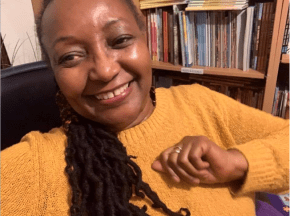 It survived the recession of 2008 and is still going strong. Fittingly, Ashay is a powerful Yoruba word that means “it shall be so.” It is also Deborah Day’s given name.
It survived the recession of 2008 and is still going strong. Fittingly, Ashay is a powerful Yoruba word that means “it shall be so.” It is also Deborah Day’s given name.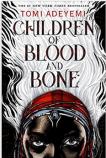 It’s exciting to see so many books for kids about black culture, people, and history gathered onto one curated site. I have now added several titles to my staggering must read pile. For instance, though I’m not a fantasy or science fiction fan at all, I can’t wait to read Tomi Adeywmi’s West-African inspired fantasy, Children of Blood and Bone. Before the week is out I will probably also dip into Nnedi Okarafor’s
It’s exciting to see so many books for kids about black culture, people, and history gathered onto one curated site. I have now added several titles to my staggering must read pile. For instance, though I’m not a fantasy or science fiction fan at all, I can’t wait to read Tomi Adeywmi’s West-African inspired fantasy, Children of Blood and Bone. Before the week is out I will probably also dip into Nnedi Okarafor’s  imaginative and highly praised tale of magic and adventure in Nigeria, Akata Witch. As Day understands, good books for kids are good for everybody!
imaginative and highly praised tale of magic and adventure in Nigeria, Akata Witch. As Day understands, good books for kids are good for everybody!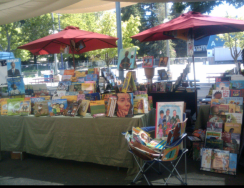 Now that those events are no longer possible she is relying more on social media ads, and she is hearing from people across the country.
Now that those events are no longer possible she is relying more on social media ads, and she is hearing from people across the country.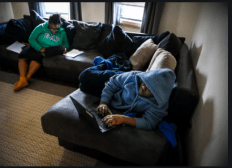 Day loves books and believes and holding a book to read is a more satisfying experience.
Day loves books and believes and holding a book to read is a more satisfying experience.

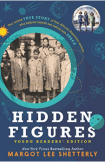 Portraits of African- American Heroes, by Tonya Bolden , including figures from dance, law athletics, science, and
Portraits of African- American Heroes, by Tonya Bolden , including figures from dance, law athletics, science, and  more. Who Was Jesse Owens? By James Buckley
more. Who Was Jesse Owens? By James Buckley  and Gregory Copeland;
and Gregory Copeland;  Brave. Black. First, 50+ African American Women Who Changed the World, by Cheryl Hudson; Hidden Figures, Young Reader’s Edition, byMargot Lee Shetterly; Black Women in Science: A Black History Book for Kids by Kimberly Brown Pellum;
Brave. Black. First, 50+ African American Women Who Changed the World, by Cheryl Hudson; Hidden Figures, Young Reader’s Edition, byMargot Lee Shetterly; Black Women in Science: A Black History Book for Kids by Kimberly Brown Pellum;


 and Look Both Ways, by Jayson Reynolds;
and Look Both Ways, by Jayson Reynolds;
 A Sky Full of Stars by Linda Williams
A Sky Full of Stars by Linda Williams  Jackson;
Jackson; Ghost Boys by Jewell Parker Rhodes; The Red Pencil by Andrea Davis Pinkney.
Ghost Boys by Jewell Parker Rhodes; The Red Pencil by Andrea Davis Pinkney. 28 Days: Moments in Black History That Changed the World by Charles R. Smith; The Talk: Conversations about Race, Love, and Truth,
28 Days: Moments in Black History That Changed the World by Charles R. Smith; The Talk: Conversations about Race, Love, and Truth, edited by Wade and Cheryl Hudson;
edited by Wade and Cheryl Hudson; 
 Hand in Hand: Ten Black Men who Changed America, by Andrea Davis Pinkney.
Hand in Hand: Ten Black Men who Changed America, by Andrea Davis Pinkney.
 by Javaka Steptoe; Who is Stevie Wonder? By Jim Gigliotti; The Legends of Hip Hop by Justin Bua; The Rose That Grew from Concrete,
by Javaka Steptoe; Who is Stevie Wonder? By Jim Gigliotti; The Legends of Hip Hop by Justin Bua; The Rose That Grew from Concrete, by Nikki Giovanni and Tupak Shakur;
by Nikki Giovanni and Tupak Shakur; 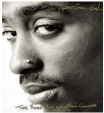 Poetry for Young People: African
Poetry for Young People: African 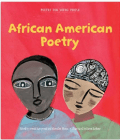 American Poetry, edited by Arnold
American Poetry, edited by Arnold  Rampersad and Marcellus Blount; Who is Stevie Wonder? By Jim Gigliotti and Who HQ’; Misty Copeland: Life in Motion.
Rampersad and Marcellus Blount; Who is Stevie Wonder? By Jim Gigliotti and Who HQ’; Misty Copeland: Life in Motion.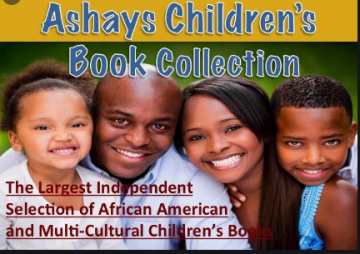 And let’s please bypass the chains when we buy these books (Amazon will survive the economic crisis) and support independent booksellers like Ashay instead. A triple win!
And let’s please bypass the chains when we buy these books (Amazon will survive the economic crisis) and support independent booksellers like Ashay instead. A triple win!